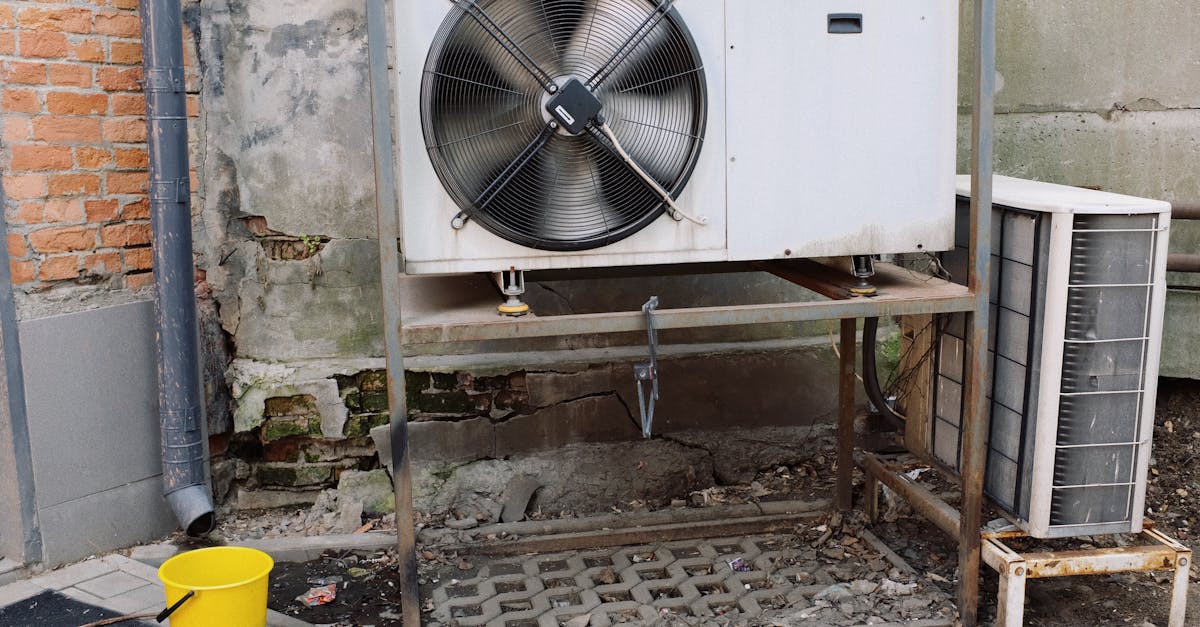
Financing Options for Heating Systems
Investing in a new heating system can be a significant expense, but various financing options can help make the process more manageable. Many homeowners turn to payment plans offered by HVAC companies. These plans allow for the cost of heating system installation and repair to be spread over several months or years, reducing the immediate financial burden.
Additionally, local banks and credit unions often provide personal loans specifically for home improvement projects. Low-interest rates may be available, making these loans an appealing choice for homeowners considering a new heating system. Choosing the right financing option depends on personal financial situations and long-term budget planning.
Available Payment Plans and Loans
Homeowners exploring financing options for a new heating system often find a variety of payment plans and loan opportunities tailored to their needs. Many energy companies and HVAC service providers offer financing solutions designed to ease the upfront financial burden. These plans may include low monthly payments, deferred interest rates, or even zero-interest loans for qualified individuals. Such options can be beneficial in managing cash flow while ensuring that essential Heating System Installation and Repair is not delayed.
Additionally, federal and state programs may provide financial assistance specifically for energy-efficient upgrades. Loans from government-backed programs often come with favorable terms, making them accessible to a broader range of homeowners. Many providers allow applicants to apply online and receive quick approvals, streamlining the process. Balancing affordability with high-quality Heating System Installation and Repair is crucial, and these financing opportunities can be an effective way to achieve that balance.
Choosing the Right System for Your Home
Selecting the right heating system for your home involves careful evaluation of several factors. Start by considering the size of your home and the specific heating needs of each room. Larger homes may require a more powerful system or multiple units to ensure consistent warmth throughout. Additionally, the type of insulation, window quality, and overall energy efficiency of your structure will influence the heating solution you choose. A professional assessment can provide valuable insights into the optimal system for your space.
When contemplating options for heating system installation and repair, homeowners should also take into account the fuel source available in their area. Different systems operate on various fuels, including natural gas, electricity, propane, or even solar energy. Each option comes with its own benefits and potential limitations. budgetary considerations, long-term efficiency, and environmental impact should guide your decision-making process to ensure a suitable match for your lifestyle and home environment.
Assessing Home Size and Heating Needs
When evaluating your home’s size and heating needs, several factors must be considered. Begin by calculating the square footage of your living space. Larger homes often require more powerful systems to maintain consistent temperatures throughout. Insulation levels, ceiling height, and the number of windows also influence heating efficiency. Understanding these elements ensures you choose a system that provides adequate warmth without excessive energy costs.
Heating System Installation and Repair can vary significantly based on the specific needs of your home. A professional assessment will help identify the best type of system for your residential space. This evaluation includes factors such as ductwork compatibility and the layout of your home. A tailored approach ensures that your new heating system operates effectively and efficiently, enhancing comfort while minimizing operational expenses.
Local Regulations and Incentives
Local regulations can significantly impact the cost of heating system installation and repair. Many jurisdictions set specific standards for energy efficiency, safety features, and emissions that must be adhered to during the installation process. Homeowners should familiarize themselves with these regulations, as they can dictate the types of systems allowed and influence overall costs. Compliance with local codes not only ensures safety but may also prevent potential fines and complications down the line.
Incentives for energy-efficient heating systems vary by location, offering potential savings for homeowners. Some regions provide tax credits or rebates for installing qualifying systems, which can alleviate the upfront costs of new installations. It is worthwhile to investigate local utility companies and government programs that support energy-efficient upgrades. These incentives can make a substantial difference when planning for heating system installation and repair, ultimately supporting both environmental sustainability and financial savings.
Potential Tax Credits and Rebates
Homeowners looking to upgrade their heating systems may benefit from various tax credits and rebates available through federal and state programs. These incentives aim to encourage the adoption of energy-efficient technologies that not only reduce energy consumption but also lower overall utility costs. For example, the federal government has offered tax credits for specific high-efficiency heating systems, making it more affordable for homeowners to invest in modern solutions.
In addition to federal credits, many states have their own rebate programs designed to incentivize homeowners to upgrade their Heating System Installation and Repair. These programs can vary significantly by location, often providing substantial financial relief to those who invest in energy-efficient options. Exploring local utility company offers and state-specific incentives is essential in maximizing savings during the installation or repair of heating systems.
FAQS
What is the average cost of a whole new heating system?
The average cost of a whole new heating system can range from $3,000 to $7,000, depending on the type of system, the size of your home, and installation costs.
Are there financing options available for purchasing a heating system?
Yes, many companies offer financing options, including payment plans and loans, to help homeowners afford the upfront costs of a new heating system.
How do I know which heating system is right for my home?
To choose the right heating system, consider factors such as the size of your home, your specific heating needs, and the system's energy efficiency ratings.
What local regulations should I be aware of when installing a new heating system?
Local regulations may include specific installation codes, permits, and safety standards that must be followed. It's important to check with your local building authority before proceeding.
Are there any tax credits or rebates available for installing a new heating system?
Yes, there may be potential tax credits and rebates available at both state and federal levels for energy-efficient heating systems. Check with local utility companies and government websites for specific programs.
